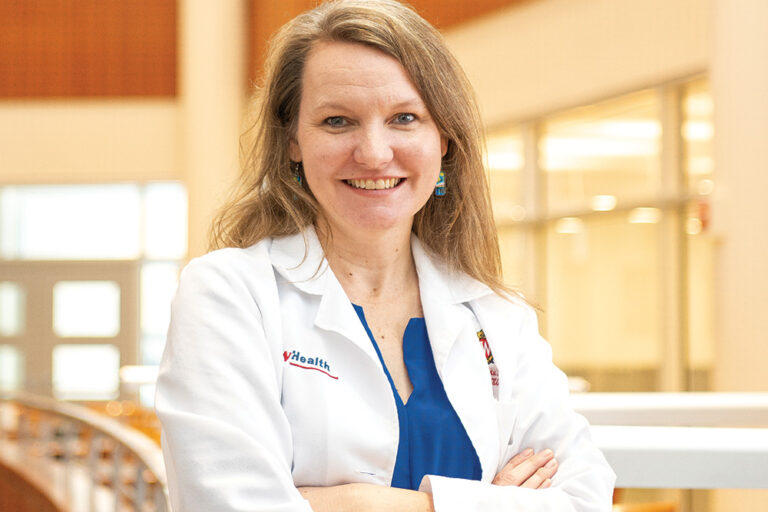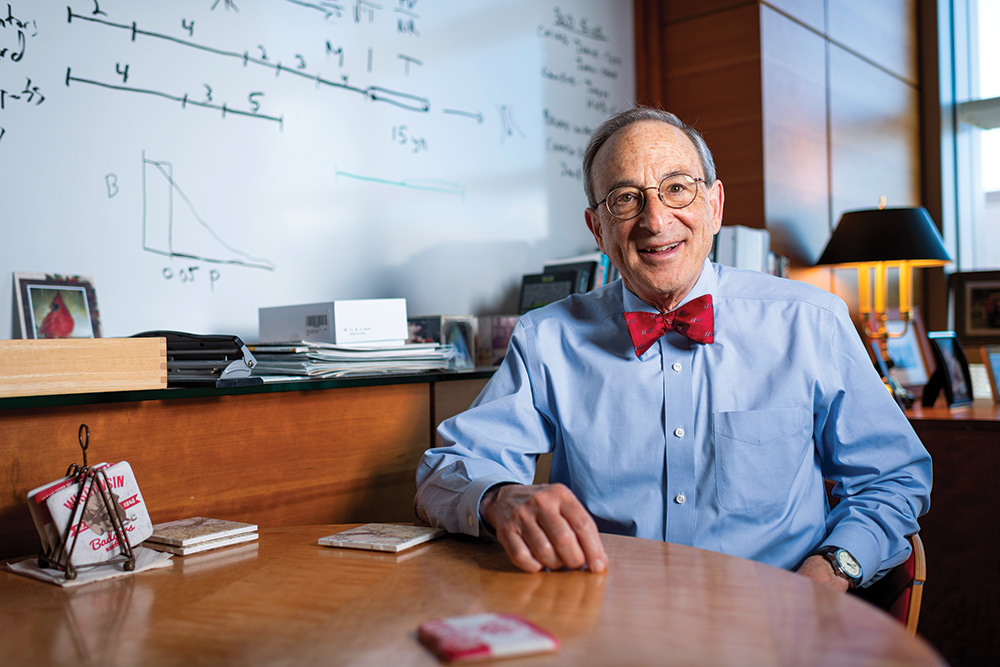Medical Collaborations at UW-Madison Are Changing Lives
Scientists at the University of Wisconsin-Madison are helping patients achieve better health outcomes by working together.
Sponsored by: University of Wisconsin-Madison

As a University of Wisconsin-Madison, WI, endocrinologist, Dawn Belt Davis is fascinated with the exquisite way in which cells and bodily systems interact.
Her fascination goes further, though, extending to how scientists from an array of disciplines can work together on life-changing research aimed at stemming the growing and costly problem of diabetes.
“There are a lot of ways we can build new collaborations and bring in new areas of knowledge that overlap what we’re trying to do and move forward toward the ultimate goal of taking care of patients,” says Davis, a physician-scientist and executive director of UW-Madison’s Comprehensive Diabetes Center.
Those collaborations have the promise of tackling an often-deadly disease affecting an estimated 34.2 million Americans and exacting an annual health care cost of $3.9 billion in Wisconsin alone.
Partnerships At UW-Madison Are Helping Diabetic Patients
The center works with 112 UW-Madison researchers and 17 others from the Milwaukee-based Medical College of Wisconsin representing fields as diverse as surgery, pharmacy, biochemistry, veterinary science and others. The center was formed in 2020 with the support of the Morgridge Institute for Research, as part of its Metabolism Initiative.
The range of partnerships at the diabetes center transcends the boundaries of individual departments.
For example, collaboration led to Davis and Department of Surgery Professor Jon Odorico working with School of Pharmacy Professor Lingjun Li, an international expert in the technology of protein identification. Her research focus was on the study of hormones in crustaceans.
“We found someone with expertise not directly related to diabetes, but we realized that there was a huge opportunity in her work to support some of the work we are doing at the center,” Davis says. “Morgridge’s support enables that kind of new, exciting collaboration.”
Morgridge’s Metabolism Initiative involves more than 500 researchers from more than two dozen campus departments studying various fields encompassing metabolism – generally referred to as the chemistry of life. In establishing metabolism as a focus area, Morgridge is building on its renowned role in advancing stem-cell science.

Brad Schwartz, Morgridge CEO, said the independent institute spent a couple of years exploring possible new initiatives through meetings and symposia. When the subject of metabolism arose, Schwartz saw a lot of excitement in the room.
“We have come to realize that every perturbation of health is accompanied by changes in metabolic pathways,” Schwartz says. “If you could make metabolic pathways revert to what they were in a healthy state, you stand a much better chance of restoring health.”
New Initiatives Are Solving Critical Health Issues
A large portion of the campus has a growing interest in metabolism, ranging from diabetes to kidney disease to wildlife biology. And, it has more than a century of deep commitment to the Wisconsin Idea – the notion that research should reach beyond campus borders to help people.
“Faculty members are famous for being cynical,” he says. “But you can get them to tear up when you talk about the Wisconsin Idea and that sense of valuing and improving something present in people’s day-to-day lives.”
Collaborations like those sparked by Morgridge, along with the university’s commitment to service, make Madison stand out. They also help fight disease, attract top talent and capture the economic benefits that scientific discovery offers.
Schwartz tells the story of a faculty member advising a post-doctoral scholar considering job offers from an Ivy League school and UW-Madison.
“She told the scholar: ‘You can’t go wrong with an Ivy League school. But every person I’ve ever known who left the University of Wisconsin spends the rest of their life trying to get back.’”



